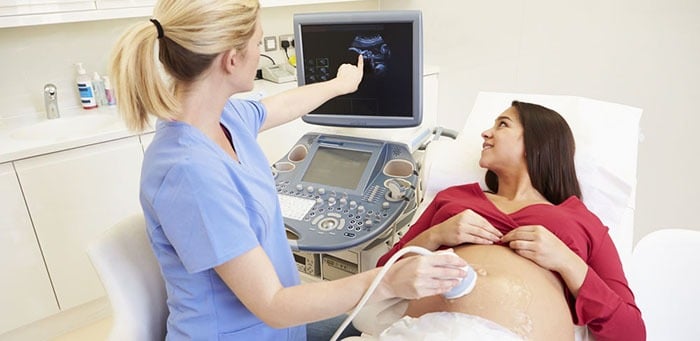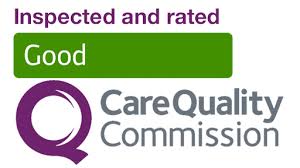Bleeding or spotting in early pregnancy can be very worrying, causing many pregnant mothers sleepless nights as bleeding during pregnancy can be a sign of miscarriage, but actually, it is rather common and most of the time it is part of a healthy pregnancy.
Statistically, 20% to 30% of pregnant women will experience some type of spotting or bleeding in early pregnancy, of which approximately 50% will result in miscarriage.
Other potential reasons for heavy bleeding during the first trimester are ectopic pregnancies or molar pregnancies. More detailed information is included in the sections below about miscarriage, ectopic pregnancy and molar pregnancy.
What’s the difference between bleeding and spotting?
Bleeding or spotting can happen anytime, from the time you get pregnant to right before you give birth. Spotting is light bleeding. It happens when you have a few drops of blood on your underwear. Spotting is so light that the blood wouldn’t cover a panty liner. Bleeding is when the blood flow is heavier, enough that you need a panty liner or pad to keep the blood from soaking your underwear and clothes.
What to Do If You Experience Vaginal Bleeding Or Spotting
• Use a pad or panty liner so that you can be aware of the level and type of bleeding you are experiencing
Do not use a tampon, or have intercourse or introduce anything into the vagina while bleeding
• Contact your health care provider immediately.
Will I have an ultrasound scan?
Yes, if your doctor or midwife thinks it is appropriate for you to have a scan or you can arrange your own private early pregnancy scan with a trusted ultrasound clinic in London.
Is it safe to have a scan in early pregnancy?
Yes, it is safe, there is so far no evidence to suggest that a pregnancy ultrasound scan is unsafe. You can read more about ultrasound scans.
Possible Reasons For Bleeding Or Spotting In Early Pregnancy
Reasons for bleeding or spotting in the first trimester of pregnancy are:
Breakthrough bleeding
Breakthrough bleeding happens when the pregnancy hormones cover up the menstrual cycle, but the cycle still continues for a short while. So it could be that you do get what appears to be your period around the same time it was due, but it could be breakthrough bleeding.
Implantation bleeding
Implantation bleeding happens between six and twelve days after a potential conception, and it is the time the embryo implants in the endometrium. Different women will have different variations of implantation bleeding; some will have light spotting for a few hours, whereas others will have this for up to a few days.
After intercourse
Bleeding may be experienced by some women, as the cervix can be sensitive and tender. Do not have intercourse until you have seen your doctor.
Infection
Vaginal infections in the pelvic cavity or urinary tracts such as bacterial or yeast infections and STDs can cause bleeding.
Subchorionic Haemorrhage
A subchorionic haemorrhage is a bleed that occurs when there is a small tear in the placenta. The haemorrhage can cause light bleeding and can be mistaken for an impending miscarriage. Some people have no symptoms at all.
Miscarriage
Miscarriage unfortunately is experienced by 50% of the women who have spotting or bleeding during the first trimester.
Why Does A Miscarriage Occur?
Miscarriage is nature’s way or your body’s way of dealing with a pregnancy that was not continuing as it should. The majority of miscarriages occur during the first 12 gestational weeks of pregnancy. (Gestational weeks date from the first day of your last menstrual period). There is normally nothing that can be done to prevent a miscarriage. Somewhere between 15% and 20% of all pregnancies will result in miscarriage.
Miscarriage Signs/Miscarriage Symptoms
• Vaginal spotting or Vaginal bleeding
• Passing tissue via the vagina
Passing blood clot
• Cramps which are generally stronger than menstrual cramps felt in the lower stomach area
Abdominal pain
Miscarriage Support
Experiencing a miscarriage can be extremely distressing for many women and can bring up undeserved feelings of being a failure and this mixed with grief, as well as dealing with a possible flux of hormones can make this a difficult time. Do get support if you ever experience a miscarriage.
Find more about support during miscarriage.
Ectopic Pregnancy
An Ectopic Pregnancy is when the pregnancy egg implants somewhere outside the uterus, such as one of the fallopian tubes. In rare cases, it can occur in the ovary, cervix or stomach area. Approximately one in sixty pregnancies will be an ectopic pregnancy.
Why Does An Ectopic Occur?
Ectopic can occur due to a condition that blocks or slows down the fertilised egg moving through the fallopian tube to the uterus; such as a previous ectopic pregnancy, previous pelvic surgery or an infection in the tubes. Sometimes the cause is not known.
Ectopic Pregnancy Signs and Symptoms
• Vaginal spotting or bleeding
• Sharp pain in the abdominal area
• Cramps which are usually stronger than menstrual cramps felt in the lower stomach area
• Low levels of hCG (pregnancy hormone)
• Shoulder tip pain
• Collapse
• Bladder or bowel problems
Ectopic Pregnancy Support
An ectopic pregnancy is not only a very tough physical condition to experience, but it affects our emotions hugely. It is good to get support if you are either going through the experience or after you have had an ectopic pregnancy.
Find more about support helplines.
You can read more about ectopic pregnancy.
Molar Pregnancy
Molar Pregnancies are also known as gestational trophoblastic disease, are a very rare reason for early pregnancy spotting or bleeding and the “mole” or molar pregnancy is when abnormal tissue has grown instead of an embryo. A molar pregnancy occurs 1 in 1000 pregnancies.
Why Does A Molar Pregnancy Occur?
It is the result of a genetic error; an abnormality of the placenta which occurs when the egg and sperm joined during fertilisation.
Molar Pregnancy Signs/ Molar Pregnancy Symptoms
• Spotting or Vaginal bleeding
• Increased hCG (pregnancy hormone)
• Vomiting and nausea
• High blood pressure
• No heart tone or fetal movement can be detected
• Sometimes a rare complication such as thyroid disease can occur
If you experience spotting in early pregnancy, your healthcare provider may in some instances recommend an early pregnancy scan which could help determine the situation. You can read more about the 6 week pregnancy scan.
If you are looking for a baby scan in London, International ultrasound services offer pregnancy scans from as early as 5 weeks gestation.
This information is meant only as a guideline and always be sure to contact your healthcare provider as soon as you have any concerns.
References:
- Norwitz ER, et al. Overview of the etiology and evaluation of vaginal bleeding in pregnant women. https://www.uptodate.com/contents/search.
- Frequently asked questions. Pregnancy FAQ038. Bleeding during pregnancy. American College of Obstetricians and Gynecologists. http://www.acog.org/~/media/For%20Patients/faq038.pdf?dmc=1&ts=20131107T1529588773.
- Gabbe SG, et al. Obstetrics: Normal and Problem Pregnancies. 7th ed. Philadelphia, Pa.: Saunders Elsevier; 2017. http://www.clinicalkey.com.
- Chestnut DH, et al. Antepartum and postpartum hemorrhage. In: Chestnut’s Obstetric Anesthesia: Principles and Practice. 6th ed. Elsevier; 2020. http://www.clinicalkey.com.
- Ferri FF. Molar pregnancy. In: Ferri’s Clinical Advisor 2020. Elsevier; 2020. https://www.clinicalkey.com.
- AskMayoExpert. Vaginal bleeding in the first trimester of pregnancy. Mayo Clinic; 2017.
- Wick MJ, ed. Symptoms guide. In: Mayo Clinic Guide to a Healthy Pregnancy. 2nd ed. Mayo Clinic; 2018.
- Butler Tobah Y (expert opinion). Mayo Clinic. Nov. 19, 2019
- American College of Obstetricians and Gynecologists: “Early Pregnancy Loss,” “Bleeding During Pregnancy.”
- Sakornbut, E. American Family Physician, 2007; vol 75: pp 1199-1206.
- Zeltzer J.S. “Vaginal bleeding in late pregnancy,” in Rakel R.E., Bope E.T. Conn’s Current Therapy, 2008, 60th ed., Saunders Elsevier, Philadelphia.
- Griebel, C.P. American Family Physician, 2005; vol 72: pp 1243-1250.
- Lozeau, A.M. American Family Physician, 2005; vol 72: pp 1707-1714.
- The American Academy of Family Physicians: “Bleeding in Early Pregnancy.”
- The American College of Obstetricians and Gynecologists. Your Pregnancy and Childbirth, Month to Month. 5th edition. 2010.
- The March of Dimes: “Pregnancy Complications.”










